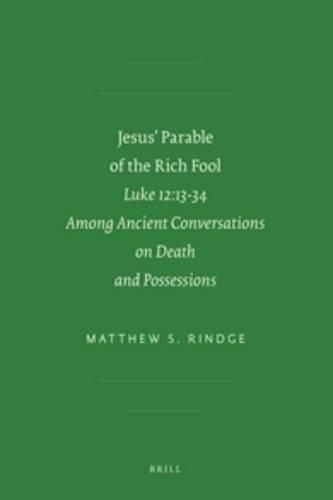Readings Newsletter
Become a Readings Member to make your shopping experience even easier.
Sign in or sign up for free!
You’re not far away from qualifying for FREE standard shipping within Australia
You’ve qualified for FREE standard shipping within Australia
The cart is loading…






Rindge reads Luke’s parable of the Rich Fool (12:16-21) as a sapiential narrative and situates this parable within a Second Temple intertextual conversation on the interplay of death and possessions. A rich analysis of Jewish (Qoheleth, Ben Sira, 1 Enoch, Testament of Abraham) and Greco-Roman (Lucian, Seneca) texts reveals a web of disparate perspectives regarding how possessions can be used meaningfully, given life’s fragility and death’s inevitability and uncertain timing. Departing from standard interpretations of Luke’s parable as a simple critique of avarice, Rindge explicates the multiple ways in which the parable and its immediate literary context (12:13-34) appropriate, reconfigure, and illustrate this contested conversation, and shows how these themes are chosen and adapted for Luke’s own existential, ethical, and theological concerns.
$9.00 standard shipping within Australia
FREE standard shipping within Australia for orders over $100.00
Express & International shipping calculated at checkout
Rindge reads Luke’s parable of the Rich Fool (12:16-21) as a sapiential narrative and situates this parable within a Second Temple intertextual conversation on the interplay of death and possessions. A rich analysis of Jewish (Qoheleth, Ben Sira, 1 Enoch, Testament of Abraham) and Greco-Roman (Lucian, Seneca) texts reveals a web of disparate perspectives regarding how possessions can be used meaningfully, given life’s fragility and death’s inevitability and uncertain timing. Departing from standard interpretations of Luke’s parable as a simple critique of avarice, Rindge explicates the multiple ways in which the parable and its immediate literary context (12:13-34) appropriate, reconfigure, and illustrate this contested conversation, and shows how these themes are chosen and adapted for Luke’s own existential, ethical, and theological concerns.